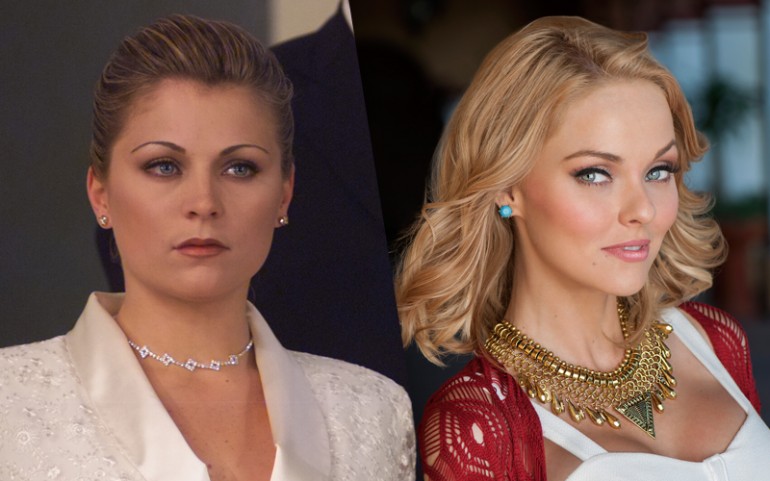How Rubí Flips Traditional Telenovela Cliches
I’m watching the Telenovela Rubí which is about a beautiful girl who wants to become rich. She attends university and befriends rich people hoping to one day become rich. Univision broadcast Rubí from 2004 to 2005 and named Rubí as a top telenovela of all time. It was written by a Mexican writer who originally wrote Rubí as a comic book.
Like Professora A mentioned in class, Rubí is special because she is the villain as well as the protagonist. She is manipulative, selfish, and jealous of the rich. She believes that since she is beautiful, she deserves to be rich.
I was thinking about representation in Rubí and the traditional Cinderella telenovela. I think it can be argued that Rubí is a sort of Cinderella. She is stunning. She comes from a poor background and lives in a poor neighborhood. I’m only a few episodes in, but I can predict she will rise socioeconomically. However, she does not fit the Cinderella mold when it comes to personality. Instead of naive, she is manipulative. Instead of pure, she is evil.
Because of this, all the classic supporting Cinderella characters like ‘the prince’ and ‘the wicked stepmother’ are also more nuanced. The prince almost immediately sees through Rubí which reverses the usual trope of the prince being unintelligent. Although the wicked stepmother does follow the trope that she is mean to Rubí, she is only mean to Rubí because she can also see through Rubí’s insincerity. I find it really refreshing that the representation of these cliche characters can be changed to create a unique story.
Something else I noticed in Rubí was how her character avoids essentialism in some ways. For example, Rubí really flips the cliche that men are always rational and women are always emotional. She is very methodical about her relationships. She doesn’t look to a man for love and emotion. Rather, she is only looking to find a rich man, so she can accomplish her goal of becoming rich. Rubí also doesn’t follow Marianismo even though her mother and sister do. She’s never home, and never helps with chores around the house. There’s been many scenes where her mother and sister are outside hanging laundry, but Rubí is never part of those scenes.
So far, it’s been fun seeing how Rubí follows the trends we talk about in class, but also bends them. The nuances of Rubí make the show unpredictable and addicting. I look forward to seeing how this further develops in the plot of the show.

Hi Maddie! I've never seen Rubi, but it was indeed really famous! I like it that you discussed how it could (or not) be analyzed in the light of the Cinderella trope, but the way you described her made me wonder whether she'd be a Maleficent or an Evil Queen type instead. I am not sure whether there would a Maleficent or Evil Queen trope for telenovelas (after all, Rubi seems to be one of a kind), but she does check several of the boxes for Maleficent/EQ in the movies. First, the three of them are pretty for cartoon standards, and also seek power (Rubi and the EQ even share the same eye color). They all manipulate to get what they want. Men are merely tools to them as they seem to be to Rubi (EQ has the huntsman do her job). This possibility seemed more plausible to me when I read the part where you mentioned that she doesn't help with the chores. The Evil Queen, for instance, has everyone do her dirty work and Snow White has to flee and clean to survive. This is kind of a stretch, but I couldn't help but see the parallels based on how you described Rubi.
ReplyDelete